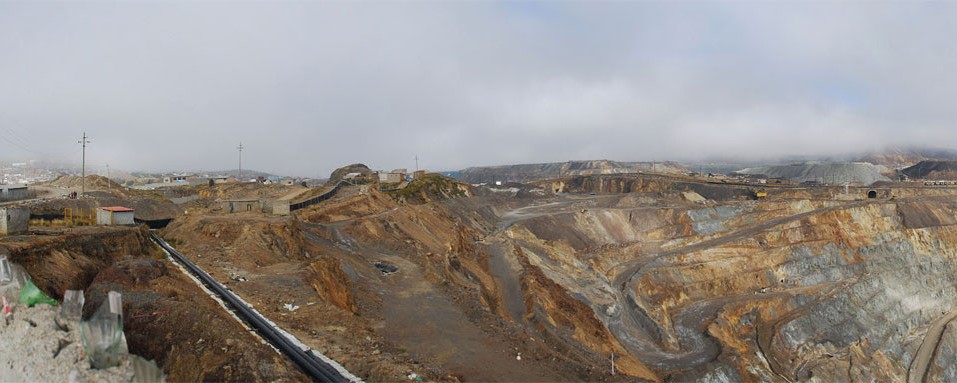
Two novel and not so novel forms of urban renewal in the new and renewed year.
One: Have a pit mine gobble up your city. Along the way, try to make sure that 82% of women of childbearing age (what is that anyway?) have high levels of toxic substances in their blood. That’s what happening in Cerro de Pasco, in the central highlands of Peru. Right to the city? More like dart to the heart of the city. Not to worry, though, the McMansion trend — buy a house, tear it down, build a monster, piss on your neighbors — is slowing down.
Two: Try a few weeks, maybe more, of aerial bombing attacks followed by ground invasion. That’ll clear out that seedy city center you’ve wanted to redevelop for so long. In Gaza, Filipinas, mostly married to Palestinian residents, refuse to leave and decide to stay. Both. GMA News describes this as “`love’”. Their quotation marks. I won’t get into that, but it is interesting that they also feel compelled to note that only one of the Filipinas is an overseas Filipina worker. So? Do domestic workers not establish roots, merely because they `only’ stay for five or ten or twenty or fifty years? Really? Anyway, a reminder, as if you needed it, that Gaza is like everywhere else: local and transnational. And that like everywhere else, women make important, and diverse, decisions and take action.
Mindy Fullilove, in Root Shock: How Tearing Up City Neighborhoods Hurts America, and What We Can Do About It, describes the racial politics of `blight’ and `urban renewal’ legislation and policy in the United States. Welcome to Cerro de Pasco, where women’s blood is being poisoned, welcome to Gaza City, where, given an opportunity, women under attack decide to stay and refuse to leave. Welcome to urban renewal, January 2009.
(Photo Credit: Vice/Arthur Holland Michel)